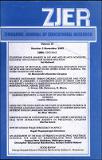| dc.contributor.author | Dirwai, C. | |
| dc.contributor.author | Makonese, P.M. | |
| dc.contributor.author | Mboto, N. | |
| dc.coverage.spatial | Zimbabwe. | en |
| dc.date.accessioned | 2015-07-10T12:30:06Z | |
| dc.date.available | 2015-07-10T12:30:06Z | |
| dc.date.issued | 2009-11 | |
| dc.identifier.citation | Dirwai, C., Makonese, P.M. & Mboto, N. (2009) Towards Sustainable Urban Organic Agriculture and Food Security in Zimbabwe: a Comparative Study of Urban Low and High Density Suburbs of Mabelreign-Marlborough-Westgate and Mabvuku-Tafara, Harare 2005-2008, ZJER vol. 21, no. 3. (pp. 302-323) UZ, Mt. Pleasant, Harare: HRRC. | en |
| dc.identifier.issn | 1013-3445 | |
| dc.identifier.uri | https://opendocs.ids.ac.uk/opendocs/handle/20.500.12413/6542 | |
| dc.description | A ZJER article on sustainable urban organic agriculture in Zimbabwe. | en |
| dc.description.abstract | The global food crisis is a real observable fact the world over and it is likely to remain with us if unsustainable food production methods are not in place. The food crisis is regarded as a serious number one problem the world over hence the need for its sustainable production is found under Target 1 of the Millennium Development Goals (MDGs). Food shortage and extreme poverty have not spared Zimbabwe of late due to recurring droughts and very high inflation of 2006-2008. This study investigated how two different urban communities, the urban poor in high density suburbs of Mabvuku-Tafara and the urban rich in the low density suburbs of Mabelreign, Madborough and Westgate, attempted to solve the food crisis. The urban poor were found doing seasonal farming in the urban periphery (off yard plots) and their farming wa? often inorganic, less paying and often exposed to the vagaries of nature. Tr.e low density urban 'farmers’often practiced on-plots perennial farming with ‘green-houses’and these on-plots gardens were often organic, researched on (soil testing for pH value) and hence better paying than the off- plots farming done by the high density farmers. The study employed mainly qualitative methodology comparing urban agricultural activities between the low and high density suburban dwellers of Harare during the peak of high inflation and droughts. It can be recommended from this comparative study that urban farming with the capacity to meet urban food demands has to wholly go organic so as to minimise land and water pollution in Harare waters. It is also envisaged that once urban farming goes organic the city fathers would enjoy an added economic advantage by cutting on water purification costs as an environmentally friendly and less polluting type of farming would be in place. It is therefore envisaged that the adoption of sustainable organic urban farming, has the potential to alleviate the urban food crisis as well as fight the effects of global warming. | en |
| dc.language.iso | en | en |
| dc.publisher | Human Resource Research Centre (HRRC) , University of Zimbabwe (UZ.) | en |
| dc.rights.uri | http://creativecommons.org/licenses/by-nc-nd/3.0/ | en |
| dc.subject | Agriculture | en |
| dc.subject | Globalisation | en |
| dc.subject | Millennium Development Goals | en |
| dc.title | Towards Sustainable Urban Organic Agriculture and Food Security in Zimbabwe: a Comparative Study of Urban Low and High Density Suburbs of Mabelreign-Marlborough-Westgate and Mabvuku-Tafara, Harare 2005-2008 | en |
| dc.type | Article | en |
| dc.rights.holder | University of Zimbabwe (UZ) | en |


